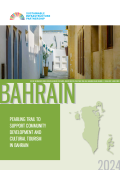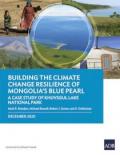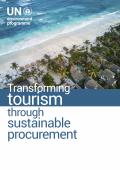
The case study details a project in Bahrain, where cultural heritage preservation was combined with economic diversification to boost tourism, create jobs, and foster community development through sustainable urban regeneration.
Lao PDR policy makers have recognized the economic potential of protected areas and seek to develop these sites as a focus of the National Socio-Economic Development Plan 2021-2025 and the 2030 National Green Growth Strategy, given the globally unique natural heritage of Lao PDR.

Tourism brings economic development as well as cultural and social benefits, but its growth has also significantly increased greenhouse gas (GHG) emissions, pressure on energy and water resources, and the creation of waste. This poses a threat to the environment and to Saint Lucia as a viable and desirable tourism product. This action plan is for policymakers, destination planners and managers, and private sector industry stakeholders. It explains how to make the accommodation value chain more sustainable, reducing the negative impacts of tourism, such as marine pollution and environmental degradation, and its high demands on natural resources.

This publication presents the first quantitative assessment of the impact of climate change on a protected area in Mongolia and helps identify adaptation measures to build climate resilience for biodiversity conservation, livelihoods, and tourism.

This case study discusses the role that sustainable procurement could play in transforming tourism by scaling up the market of sustainable products and services.
This is a roadmap to sustainable accommodation and MICE sectors in the Philippines, via resource-efficient and low-carbon development. Its vision is to enhance a globally recognized tourism destination that showcases and protects the natural beauty of the Philippines, the hospitality of its people and its cultural identity.
These case studies demonstrate how corporate buyers have effectively embedded sustainability in their procurement processes to improve resource efficiency and reduce GHG emissions.
This paper presents the major tourism management issues in Xishuangbanna Prefecture, with a particular focus on Xishuangbanna Biosphere Reserve (XBR). It emphasizes the integration of social, economic, and environmental goals for effective tourism planning and development. The situation analysis was patterned after the principles of the 7Es Environmental Management model for nature-based tourism management—Environment, Economics, Enforcement, Experience, Engagement, Enquiry, and Education.
In the Republic of the Maldives, coral reefs and associated habitats provide valuable ecosystem services such as fish and other food, natural hazard protection, climate regulation, and the beaches, clear blue waters, and seascapes that are the basis for the thriving tourism industry. The analysis presented in this report clearly shows that investing in coral reef management would be beneficial to the economy of North Ari Atoll.
This case study provides information on the social resilience of eight local community islands in North Ari Atoll, Maldives, and identifies differences in gender roles, resource use, and perception of environmental issues. This study is key in understanding the value of ecosystem services in one atoll in the Maldives.
